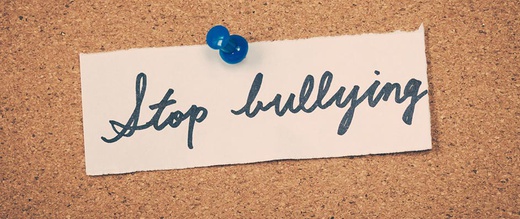The views expressed in our content reflect individual perspectives and do not represent the authoritative views of the Baha'i Faith.
“Sticks and stones may break my bones, but names can never harm me.” Not true. Baloney. Balderdash. Names may not cause physical harm, but they do damage psyches. A harsh word or an insult can cause more pain—and last a lot longer—than some bodily injuries.
Lately I’ve heard and read about people who decry society’s “obsession with the N-word,” who seem to think that racist slurs shouldn’t hurt. Those who don’t understand other people’s pain have probably never been at the receiving end of prejudice and discrimination. “Just get over it,” they cry. But this kind of pain digs deep, embedding it with a barb into the soul, making it very hard to remove or forget.
Years ago the poem, Incident, by Countee Cullen, became a staple in my presentations on race issues.
Once riding in Old Baltimore, heart-filled, head-filled with glee
I saw a Baltimorean keep looking straight at me
Now I was eight and very small and he was no whit bigger,
And so I smiled, but he poked out his tongue and called me “Nigger.”
I saw the whole of Baltimore from May until December
Of all the things that happened there—that’s all that I remember.
When visiting my friend, Anne Perry, in Dallas she invited me to be a guest lecturer for her Upward Bound class. Part of my program included a recitation of Incident, first for rhyme and meter—its bouncy cadence such a stark contrast to its message. Next I gave a prosy recitation; I dramatized it in order to express the pain and dejection inherent in the author’s words.
Students whose body language showed boredom, defiance, and other negative emotions at the beginning of this, their first class of the summer session, soon sat forward, arms no longer folded tight against their chests. The curves at the sides of their mouths shifted upward. Their eyes, dull and unfocused earlier, now stared right at me, sparked with interest. An animated discussion followed.
Another Upward Bound teacher asked me to repeat the program for her class the following day. At the end of the presentation, the African-American instructor rose slowly from her chair. Her eyes moist, her voice subdued, she told the students, “When I was in school, I was assigned to recite Incident. My delivery was quite similar to the second one that Mrs. Toth just presented. My teacher gave me an ‘F.’”
There I stood, a total stranger—and a white one at that—who used a poem about the distress of name calling and unwittingly eased a pain from her past, a pain of being called, by insinuation: a failure, by intimation: worse. She’d probably always known she was right, since she now exuded an aura of healthy self-esteem, but the knowing look in her eyes as she shook my hand told me she appreciated hearing this long-overdue validation of her reality from another person.
I experienced prejudice myself as a child, being called “Dirty Jew” and “Christ-Killer.” After joining the Baha’i Faith while in high school, fellow students teased me, purposely mispronounced “Baha’i,” and claimed it was a cult. So I felt I had some small understanding of this woman’s pain. It moved me to write my own version of the “sticks and stones” verse:
Sticks and stones may break my bones
But name calling’s pain is worse.
Negative, spiteful epithets
Place on me a curse.
This passage from Baha’i writings gently advises us to guard our speech from expressing any unkindness:
One word may be likened unto fire, another unto light, and the influence which both exert is manifest in the world. Therefore an enlightened man of wisdom should primarily speak with words as mild as milk, that the children of men may be nurtured and edified thereby and may attain the ultimate goal of human existence which is the station of true understanding and nobility. And likewise He saith: One word is like unto springtime causing the tender saplings of the rose-garden of knowledge to become verdant and flourishing, while another word is even as a deadly poison. It behoveth a prudent man of wisdom to speak with utmost leniency and forbearance so that the sweetness of his words may induce everyone to attain that which befitteth man’s station. – Baha’u’llah, Tablets of Baha’u’llah, p. 172

















Comments
Sign in or create an account
Continue with Facebookor